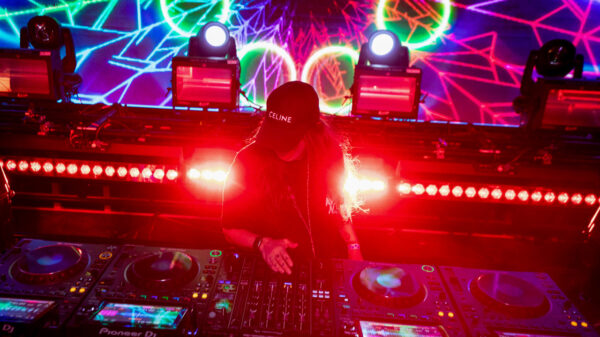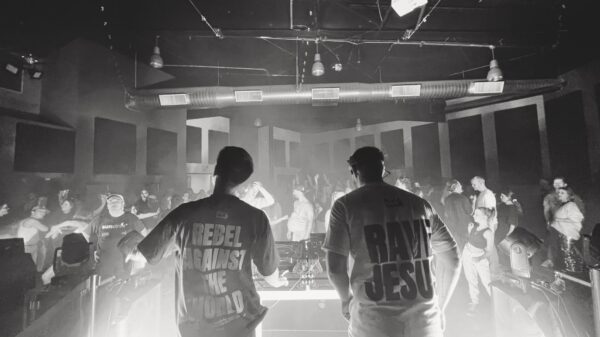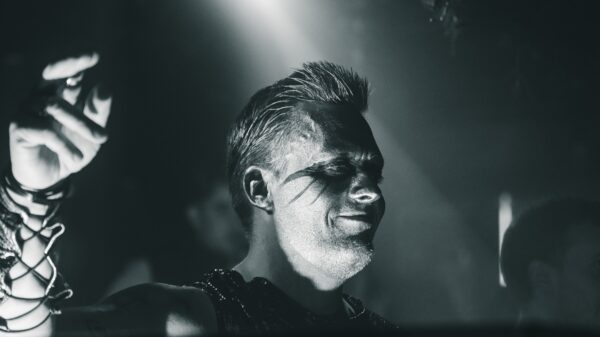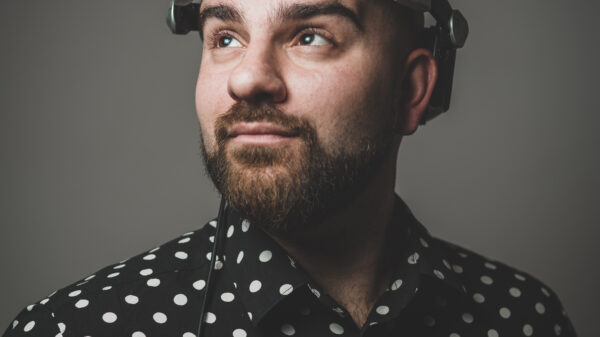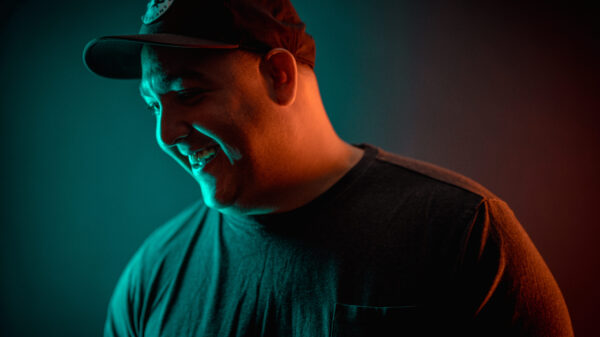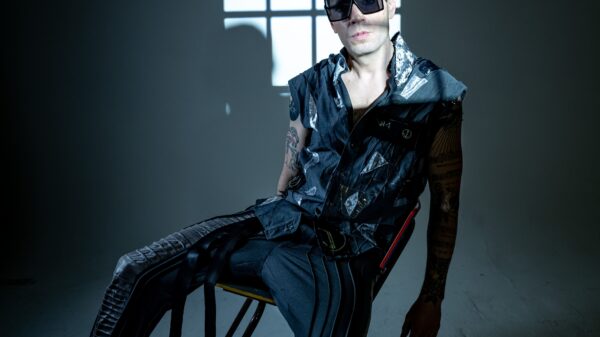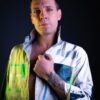Canguru continues to strike out as a unique force on the scene, emerging with a sound that appears as a diverse accumulation of his influences and inspirations; blending elements from genres like Electro-Pop, Melodic Techno, and Alt-Hip-Hop, Canguru’s productions emerge as an impressive showcase of his varied musical background and innate talents when it comes to producing captivating music. So, today, we’re looking forward to being joined by Canguru to talk through his approach towards music production and gain insight into his creative journey so far.
Hi Canguru, a pleasure to meet you! How are you?
I’m good thanks. How are you?
Doing well, thanks! To start, tell us about your journey into Electronic Music production; what first inspired you to start experimenting with dance music?
Well, when I moved to Manchester in the late 90s, I got a chance to experience the nightclubbing scene of Manchester’s legendary Haçienda before it closed down and I progressively discovered exciting electronic bands such as The Chemical Brothers and The Prodigy. A while before that, I had been listening to Metal for many years and Industrial music with bands such as NIN and Ministry. I guess, it was a natural progression for me to be drawn to the energy of Dance and Electronic Music. When I first moved to the UK to study sound engineering at Salford University, a uni friend of mine gave me a copy of Reason’s first DAW software and from that moment I got hooked on it and started writing my first Electronic Music ideas.
Which DAW is your favourite?
I am a big fan of Ableton Live. I use it all the time and control it with a push 2, which I absolutely love!
How did you learn to produce music?
Since my early days living in Manchester, I have always been interested in the production side of music. I would often experiment with recordings of my own music and other band’s recordings that I would engineer for. I learnt about it pretty much as I went along.
Studying sound engineering at uni gave me my first insight into music production. Then studying composition and learning to play the guitar and the saxophone also furthered my musical knowledge. I had also been running a recording studio and whilst writing my own music it felt natural for me to learn to produce my own songs.
I also read a lot along the way about music production in magazines and watched many instructive videos about the process online.
How do you find the inspiration to create and produce music? Where do you draw ideas that spark your creativity?
I often listen to a lot of music. I’m always keen to discover new artists out there. Spotify radio is a good way for me to discover new music similar to my favourite genres and styles.
Improvisation is a good way for me to come up with new ideas. I might jam around an idea until I am happy with the results of the development and then I press record.
When it comes to writing lyrics, it is also a kind of free-flowing process where I write down any words and sentences that come to my mind, and then, later on or the next day I will re-organise the big mess into something more coherent with the help of a dictionary/thesaurus. I love learning new words and getting to use them in my lyrics to spice things up.
What does your usual production process look like? How do you approach creating a new track?
Quite often the music comes first. I usually start building a kind of framework for a song and start with a beat, bass line or loop that I gradually develop – all very much influenced by the mood I’m in during that moment.
The lyrical content often comes after, except if the song is very stripped down in terms of lyrics with only a few words or a single lyric line that is repeated over the arrangement of the song. In this case, the lyrics might come early in the writing process. I mean, there is no real set way for me to write a new song, but what I can say is that sometimes it can be a fast process, where it takes me only a few days to finish a production that sounds good enough to my ears. Sometimes an idea for a song will stay an unfinished idea until a while later when it is finally revisited and finalised.
Overall, I tend to set my mind to finishing most of my ideas until I reach that stage where I can’t take them any further afield. I guess we all go through periods of writer’s block eventually, but for me, it is key to find coping mechanisms to avoid these moments of stagnation. Further to this, I think the best way to become proficient at producing and creating a track is to just dive in and do as much of it as possible to eventually learn to hone the skills, so to speak. I’m still learning a lot about this process every day though and that keeps me excited about it.
What are your favourite plugins and effects?
Well, there are a lot of effects and plugins I like.
I like experimenting with Native Instrument’s The Mouth and The Finger. That is a lot of fun. There are so many possibilities to mess around with the flexibilities of playing with samples, stretching them and cutting them up into smaller sample cells that I can then control with my push 2.
I have a lot of cool classic synths to play around with from Arturia’s V Collection.
I also really like Dada Life’s plugin, Endless Smile for those cool filter sweep build-ups and Sausage fattener to add some compression and distortion. Both of these are fun and easy to use.
Which pieces of equipment would you say are essential to your production process?
I use a Shure Sm7b mic for recording most of my vocals and some acoustic guitars. I also use a Chandler TG2 pre for that really nice cool classic transistor characteristic sound on the vocals or other instruments.
Another preamp that I use for a totally different sound colouring is the UAD 4-710 with 4 mic pres that each have a blend between valve and transistor adjustable to play with.
Another main instrument that I use extensively to control Ableton is Ableton’s Push 2.
And of course, there are also my 2 babies:
my Selmer MK6 tenor and alto saxophones!
With your background and experience as a band leader, how has that influenced and positively impacted your music production skills now?
Well, I guess as a constantly developing musician and Producer, the many experiences I have related to making music have been very useful. Throughout my journey, I’ve been like a sponge, soaking in as much knowledge as I can related to music. I was lucky enough that, from a young age, I was brought up with music around me and my mother always encouraged me to learn music. Playing in bands taught me a lot about working with other musicians and understanding more about the dynamics between each instrument in a mix. Throughout my development, I played many different styles of music and learnt a lot from this. Being a band leader taught me a lot about communication skills and learning to be more humble when working with a team. After all, I don’t claim to have the answer for everything. That is why working with a team is really useful and important. It is also a lot more fun than working alone.
What would be one piece of advice you would give to a rising producer who is trying to perfect their skills?
Get as much experience in the field as you can. Offer your services to up-and-coming artists for free first. Constantly try to develop your skills. Work hard and be disciplined. Nobody just hones the skills to become a good Producer without doing the homework.
It’s not going to be easy sometimes and you might spend most of your time alone in a studio while your friends are out partying but eventually, you will get better at producing and once you become good at it, the real fun begins and you will get much faster at producing music to a professional standard.
Armed with the knowledge, experience, and skills that enable him to produce hard-hitting music, Canguru is no doubt a talent to keep on your radar as he promises more striking tracks soon. So, as we round up our interview, we thank Canguru for his time and encourage you to keep up-to-date with him by following him across social media.
Canguru Online

